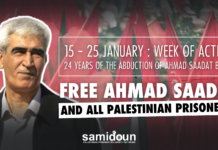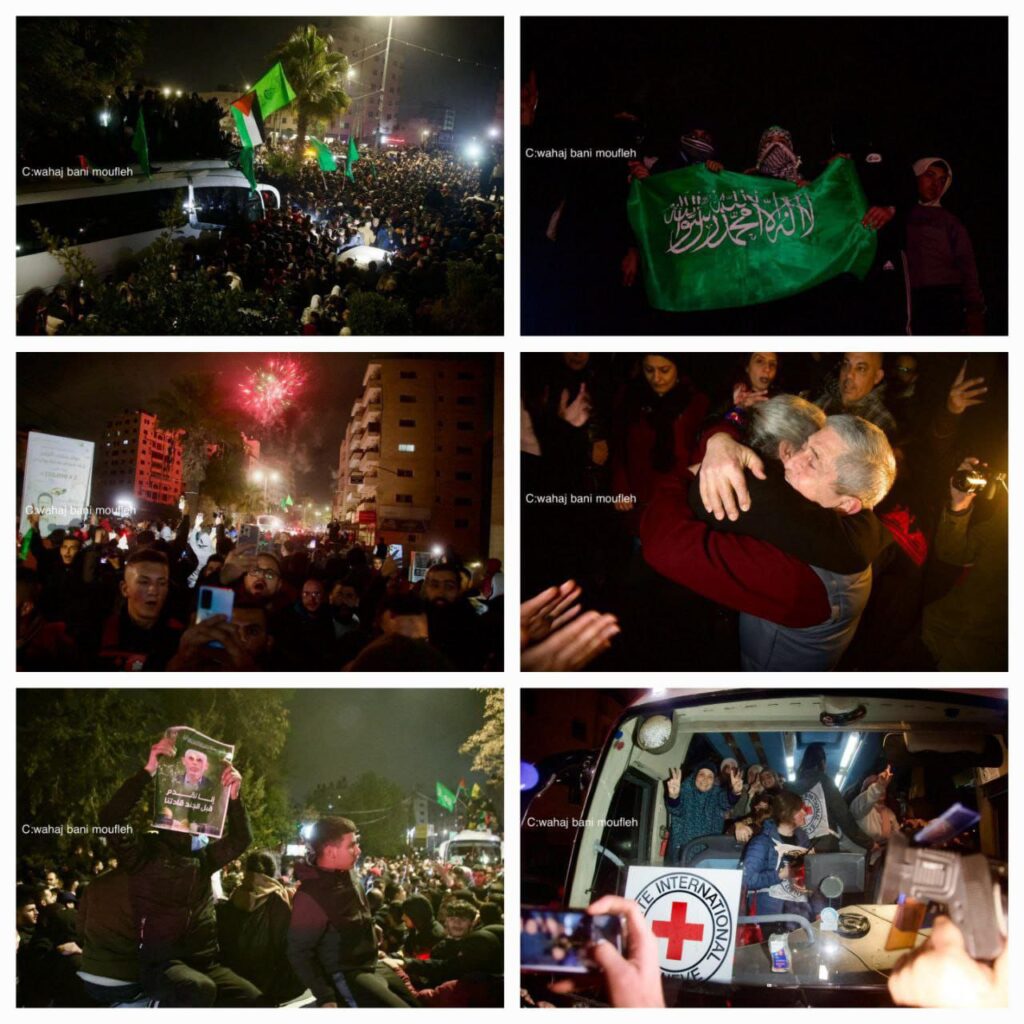
In the early morning hours of Monday, 20 January, 90 Palestinian prisoners were liberated from the jails of the Zionist occupation regime in the first day of the Flood of the Free (Toufan al-Ahrar) prisoner exchange, achieved by the Palestinian Resistance as part of the first stage of the ceasefire agreement imposed upon the occupier. Despite hours and hours of delays created by the occupation, repeated invasions of Jerusalemite Palestinian prisoners’ family homes in an attempt to prevent them from celebrating, and the firing of tear gas and rubber-coated metal bullets on the crowds awaiting the prisoners’ release in Beitunia, the Palestinian people celebrated and received their beloved, liberated prisoners and the Resistance and sacrifices of the people of Gaza that obtained their freedom.
The captives — 70 women and 20 male youth — liberated in the first day of the exchange were:
- Nawal Fatiha, 23, Jerusalem
- Aseel Osama Shehada, 18, Qalandiya, Jerusalem
- Tamara Abu Laban, 24, Jerusalem
- Jenin Mohammed Amr, 22, al-Khalil
- Nafisa Rashid Farid Zourba, 37, Jericho
- Khalida Kanaan Jarrar, 61, Ramallah/al-Bireh
- Yasmine Abdel-Rahman Abu Srour, 26, Bethlehem Aida Camp
- Fatima Nimr al-Rimawi, 52, Jericho
- Dalal Mohammed Suleiman Khasib (al-Arouri), 53, Ramallah
- Fatima Mohammed Suleiman Saqr (al-Arouri), 48, Aroura
- Rana Jamal Mohammed Darbas, 35, al-Bireh
- Zahra Wahib Abdel-Fattah Khadraj, 52, Qalqilya
- Balqis Issa Ali Zawahra, 33, Bethlehem
- Duha Azzam Ahmad al-Wahsh, 29, al-Taamra, Bethlehem
- Halima Fayeq Suleiman Abu Amara, 22, Nablus
- Mona Ahmed Qasim Abu Hussein, 46, Abboud
- Bushra Jamal Mohammed al-Tawil, 31, al-Bireh
- Raeda Ghanem Mohammed Abdel-Majeed Barghouti, 46, Abboud
- Murjana Mohammed Mustafa Hreish, 32, Beitunia
- Walaa Khaled Tanji, 28, Tulkarem camp
- Rawda Musa al-Akhras (Abu Ajamiyeh), 47, Dheisheh Camp
- Rula Ibrahim Abdel-Rahim Hassanein, 30, Bethlehem
- Ahmed Bashar Jumaa Abu Aliya, 18, Ramallah
- Saja Zuhair al-Muaddi, 27, Kufr Malek
- Shaimaa Mohammed Abdel-Jalil Rawajbeh, 25, Nablus
- Salwa Attiya Mahmoud Hamdan, 45, Dheisheh Camp
- Rose Yousef Mohammed Khweis, 17, Jerusalem
- Fatima Youssef Mustafa Salha, 36, Deir Jarir
- Haneen Akram al-Masaed, 30, Aida camp, Bethlehem
- Jihad Ghazi Ahmed Joudeh, 36, Jericho
- Nidaa Ali Ahmad Salah (al-Zughaibi), 37, Kufr Dan, Jenin
- Amal Ziyad Omar Shujaia, 21, Deir Jarir
- Lubna Mazen Salim Talalweh, 46, Arraba, Jenin
- Ola Mahmoud Qasim Azher (Jouda), 22, Kabalan, Nablus
- Ayat Yousef Saleh Mahfouz, 33, al-Khalil
- Hadeel Mohammed Hussein Hijaz (Shatara), 32, Mazraa al-Sharqiya
- Wafa Ahmed Abdullah Nimr, 21, Kharbatha Bani Harith
- Rasha Ghassan Mohammed Hijjawi, 40, Tulkarem
- Zeina Majd Mohammed Barbar, Silwan, Jerusalem
- Israa Khader Ahmed Ghneimat (Lafi), 40, Surif, al-Khalil
- Tahani Jamal Abed Ashour, 49, al-Khalil
- Aya Omar Youssef Ramadan, 23, Tal, Nablus
- Shaimaa Omar Youssef Ramadan, 19, Tal, Nablus
- Dunia Shtayyeh Marouf Shtayyeh, 20, Salem, Nablus
- Alaa Jad Nabhan Shaheen, 37, Beitunia
- Nahil Kamal Mustafa Masalmeh, 37, Dura, al-Khalil
- Khitam Arif Hassan Habaybeh, 50, Jenin
- Aseel Mohammed Adnan Eid al-Yassini, 20, Jerusalem
- Alaa Samir Harb Abu Rahima, 27, Beit Rima
- Baraa Hatem Hafez Fuqaha, 25, Tulkarem
- Shatha Nawaf Jarabaa, 23, Bittin
- Dania Saqr Mohammed Hanatsheh, 22, Ramallah
- Saja Imad Saad Daraghmeh, 19, Tubas
- Al-Yamama Ibrahim Hassan Hreinat, 21, Yatta, al-Khalil
- Raghad Walid Mahmoud Amr, 24, Dura, al-Khalil
- Hanan Ammar Bilal Ma’alawani, 23, Nablus
- Raghad Khader Deeb Mubarak, 23, al-Khalil
- Ashwaq Mohammed Ayyad Awad, 23, Beit Amr, al-Khalil
- Iman Ibrahim Ahmed Zaid, 40, Beitunia
- Tahrir Badran Badr Jaber, 44, Beitunia
- Abla Mohammed Othman Abdel-Rasoul (Sa’adat), 68, Ramallah
- Israr Abdel-Fattah Mohammed al-Lahham, 42, Bethlehem
- Myassar Mohammed Saeed al-Faqih, 60, Nablus
- Abeer Mohammed Hamdan Ba’ara, 33, Nablus
- Samah Bilal Abdel-Rahman Souf (Hijjawi), 25, Qalqilya
- Margaret Mohammed Mahmoud al-Ra’i, 53, Qalqilya
- Latifa Khaled Ramadan Mashasha, 34, Jerusalem
- Israa Mustafa Mohammed Berri, 54, Jenin
- Alaa Khaled Mohammed Saqr al-Arouri, 21, Ramallah
- Lana Farouk Naeem Fawalha, 25, Sinjil, Ramallah
- Jamal Kaabneh, 18, al-Khalil
- Adam Hadara, 18, Jerusalem
- Mouadh Omar Abdullah al-Haj, 17, Ain Sultan Camp
- Ibrahim Sultan Ibrahim Zumour, 17, Askar camp
- Abdel-Rahman Jamil Khudeir, 18, Beita
- Saeed Mizyed Saeed Salim, 18, Azzoun
- Mohammed Aman Fawzi Bishkar, 18, Askar camp
- Issam Mamoun Abu Diab, 18, Jerusalem
- Thaer Ayoub Rashid Abu Sarah, 17, Jerusalem
- Fahmi Mohammed Fahmi Faroukh, 17 Silwan, Jerusalem
- Qasim Iyad Mohammed Jaafreh, 17, Jabel al Mukaber, Jerusalem
- Youssef Jamal Ayyad al-Hreimi, Bethlehem
- Firas Jihad Ahmed al-Maqdisi, 18, Silwan, Jerusalem
- Abdel-Aziz Mohammed Atawneh, 19, al-Jiftik, Jericho
- Fadi Bassam Mohammed Hindi, 17, Jenin
- Osama Nasser Jibran Abed Ataya, 18, Kifr Nimah
- Ayham Ali Issa Jaradat, Sair, al-Khalil, 18
- Mahmoud Mohammed Daoud Aleiwat, 15, Silwad, Jerusalem
- Laith Mohammed Naji Kamil, 17, Qabatiya, Jenin
- Ahmed Walid Mohammed Khashan, 18, Arraba, Jenin
They included multiple liberated prisoners who had earlier been released by the resistance in the first prisoner exchange of Al-Aqsa Flood, in November 2023, only to be targeted for re-abduction by the occupation, including Wala’a Tanja, Ahmed al-Khashan, Haneen al-Masaed, Rawda Abu Ajamiyeh, and Samah Hijjawi, as well as several well-known, leading prisoners, such as Khalida Jarrar, the prominent Palestinian feminist, leftist and scholar; Abla Sa’adat, the wife of Ahmad Sa’adat, the imprisoned general secretary of the Popular Front for the Liberation of Palestine and writer Zahra Khadraj of Qalqilya; journalists like Israa Lafi, Bushra al-Tawil, and Rula Hassanein; students like Jenin Amr, Raghad Amr, Shaima Rawajbeh, Tamara Abu Laban, Duha al-Wahsh, Amal Shujaia, Ola Jouda, Dunia Shtayyeh, Aseel Eid al-Yassini, Baraa Fuqaha, Shatha Jarabaa, Dania Hanatsheh, Raghad Mubarak, sisters Shaima and Alaa Ramadan, and Al-Yamama Hreinat; educators like Hadeel Shatara and Fatima al-Rimawi; and three members of the Al-Arouri family, targeted and imprisoned because of their relation to the assassinated martyred Hamas leader, Salah al-Arouri: Dalal al-Arouri, Fatima al-Arouri, and Fatima’s daughter, Alaa Saqr.
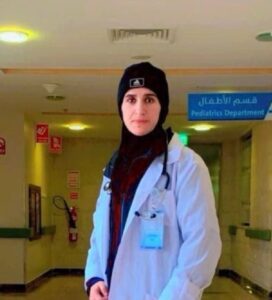
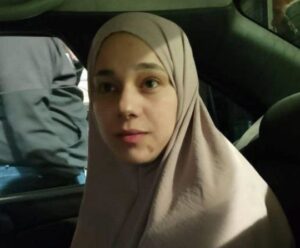
For both Duha al-Wahsh and Wala’a Tanja, both learned that their brothers had been martyred during their imprisonment, a reality that had been kept from both of them due to the blockade on news and information imposed upon the prisoners. Duha, a medical student, learned that her brother Ahmad, a doctor, had been martyred following her arrest, only upon the moment of her liberation; so, too, did Wala’a Tanja, whose joy at liberation was met with the news that her beloved brother Ayman had been martyred during her imprisonment.
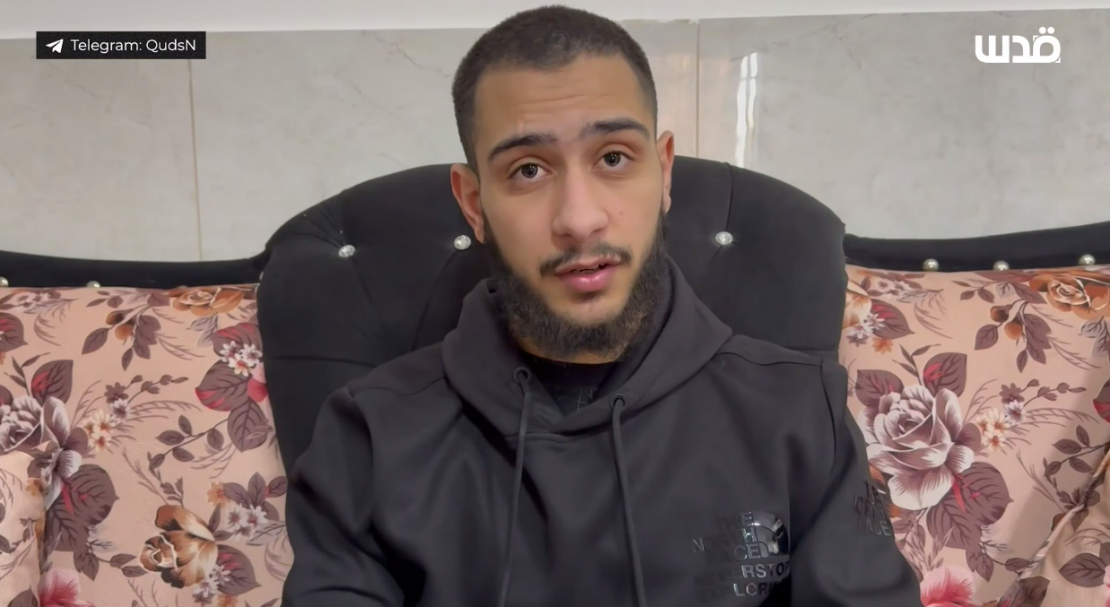
Ahmad al-Khashan, from Bir al-Basha, south of Jenin, was abducted by the occupation on 25 January 2024, the same day his brother, Wissam, also a liberated prisoner, was martyred by the occupation’s bullets, and his brother Mohammed injured in the leg. He had previously been liberated in the November 2023 exchang.
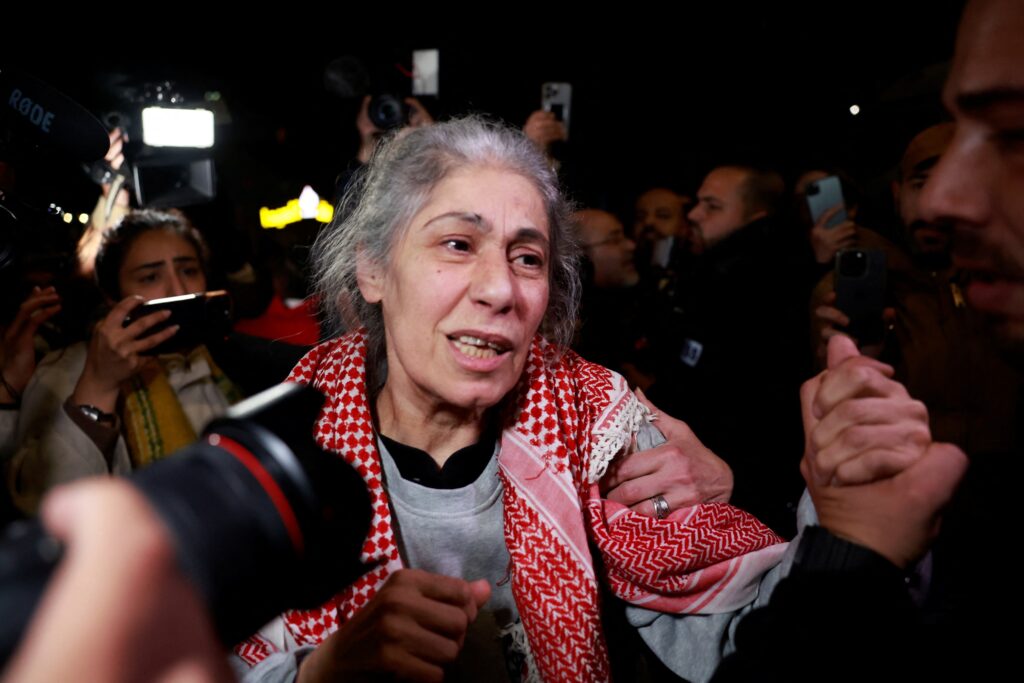
Several of the women prisoners required immediate health care, and the clear signs of medical neglect and abuse stood in sharp contrast to the health of the three Zionist captives who had been released by the Resistance earlier in the day, despite their circumstances under a genocidal bombing and siege in Gaza. Khalida Jarrar emerged from prison with the signs of her mistreatment — including five months and one week held in solitary confinement with only a small slit with which to breathe the air — evident on her face and body, while Margaret al-Rai emerged from the bus with a broken hand, injured by the assault of occupation prison guards. Many of the prisoners had lost tens of pounds during their imprisonment due to the occupation’s starvation policy directed against the prisoners.
Dunia Shtayyeh, the 20-year-old student at the Faculty of Sharia at An-Najah University, was awaited by her grandmother, the famous Hajja Mahfouz Shtayyeh, who became an iconic symbol of Palestinian connection to the land as she hugged her olive trees as they were cut and burned by settlers.
In fact, the women prisoners were subjected to abuse on the day of their release, as related by Jerusalemite liberated prisoner Latifa Mashasha in interviews; after being transferred from Damon to Ofer prison, the women were dragged by their hair, thrown on the ground while dogs barked at them. Several women were beaten, shortly before they were finally delivered to the ICRC for the exchange. Meanwhile, occupation forces were imposing terror upon the homes of the Jerusalemite prisoners, repeatedly invading their family homes, summoning family members to the notorious Moskobiyeh interrogation center, and warning of any kind of celebration of the release of their beloved prisoners. Meanwhile, in Beitunia, occupation forces attempted to dispel the growing crowds awaiting the liberated prisoners, injuring 6 as they fired upon them, and forcing the prisoners’ families to wait long into the early morning hours. However, none of these efforts quelled the celebration of the Palestinian people, who joyously welcomed the liberated prisoners, waving the flags of the resistance and Palestinian flags and chanting for the victorious resistance in Gaza, al-Qassam Brigades, Saraya al-Quds, and the prisoners’ liberation.
Unanimously, the prisoners expressed their love and solidarity for the people of Gaza. “Our feelings go to our people in Gaza. Our concern in prison, despite the torture and abuse, is for the war on Gaza to stop. Our message and thanks to them… We will never forget what they have done for us us until the Day of Judgment,” said liberated medical student Bara’a Fuqaha.
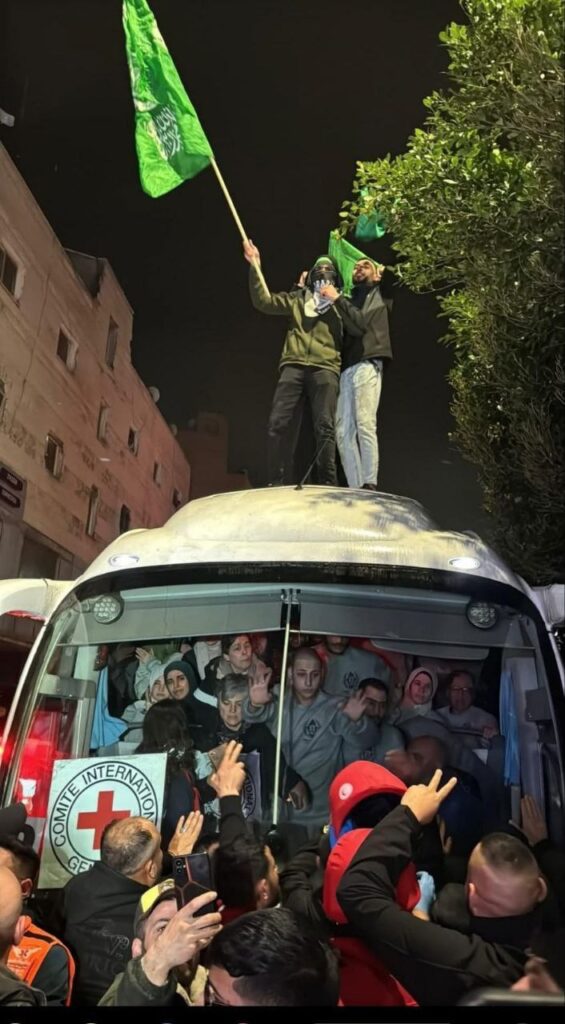
The 90 liberations are only the first of a series of exchanges that will see approximately 1,737 Palestinians liberated in the first stage of the Flood of the Free/Toufan al-Ahrar by the Palestinian Resistance. This is only the first stage, with the second stage of prisoner exchanges targeting the leaders of the Resistance, including Marwan Barghouti, Ahmad Sa’adat, Abdullah Barghouti, Ibrahim Hamed, Abbas al-Sayyed and Hassan Salameh, that the occupation has refused to release. Once again, as throughout the history of prisoner exchanges, it has been made clear that it is the resistance that brings liberation, to the prisoners, the land and the people of Palestine, a resistance that stretches from the heart of Gaza, throughout Palestine, to Yemen, Lebanon, Iraq and Iran, and to the people of the world.
We urge everyone, around the world, to join with the Palestinian people in Gaza and everywhere, to celebrate the achievements of the Resistance and the humiliation of the occupier, and to celebrate and welcome each liberated prisoner as the heroes of our global movement that they are, in public events, with posters and public education, with actions and events exposing Zionism and imperialism everywhere.
The Week of Action to Free Ahmad Sa’adat and all Palestinian Prisoners is continuing amid the Flood of the Free — this is an excellent opportunity to highlight the prisoners with lengthy sentences and support the resistance’s demand for their liberation, while celebrating the exceptional accomplishments of the Flood of the Free on a daily basis.
We urge all supporters of Palestine and Palestinian and Arab communities to receive and honour the prisoners virtually and symbolically — and pledge to continue the movement until all of them are free, and all of Palestine is free, from the river to the sea.
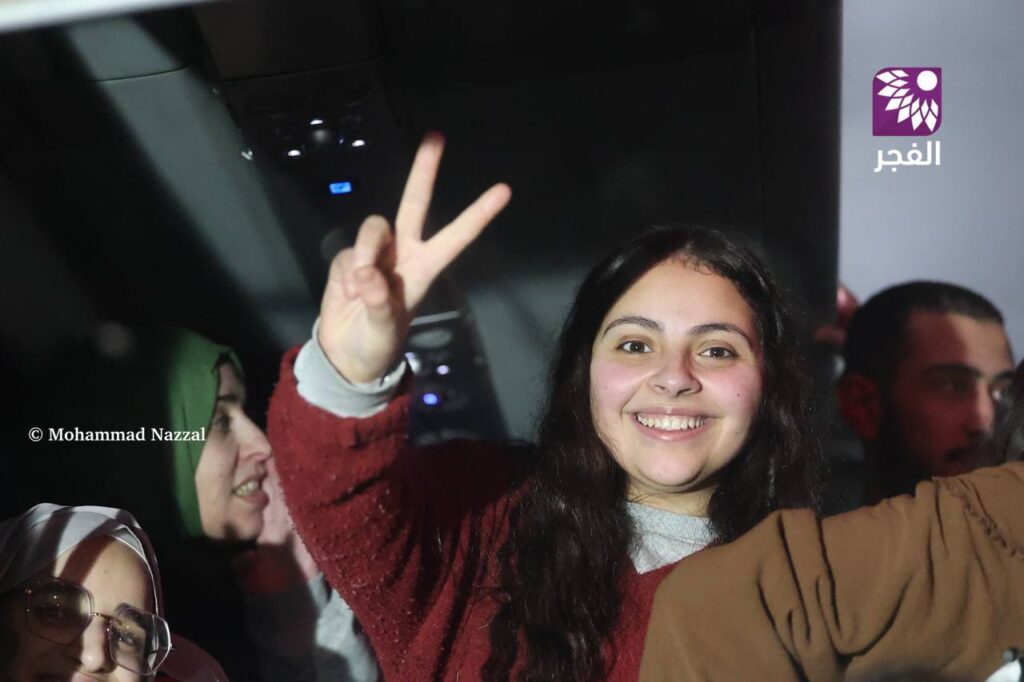
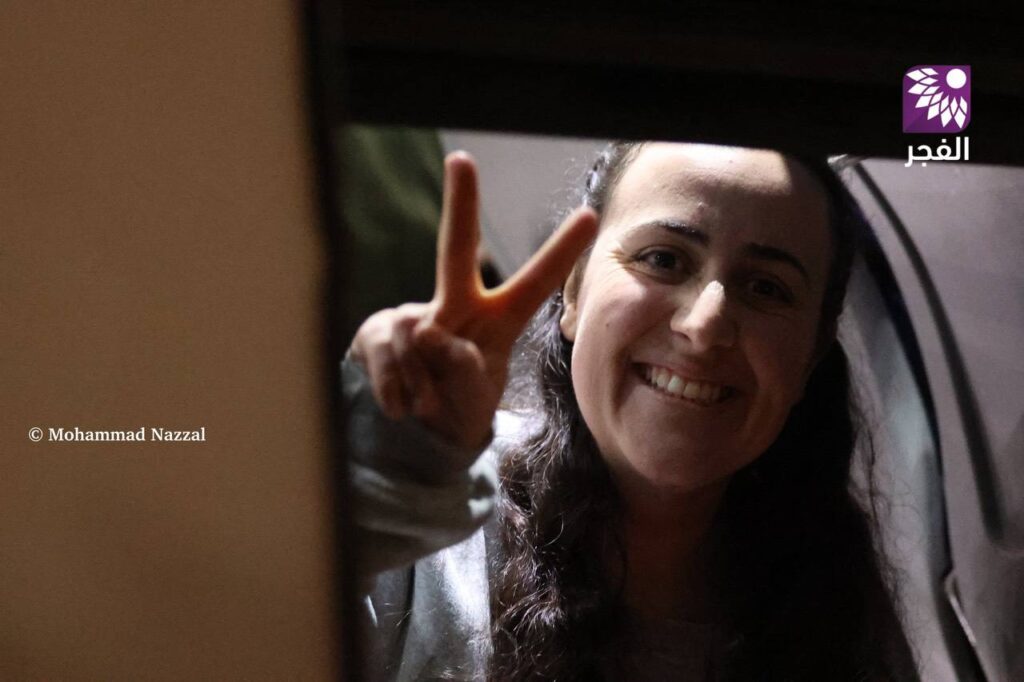
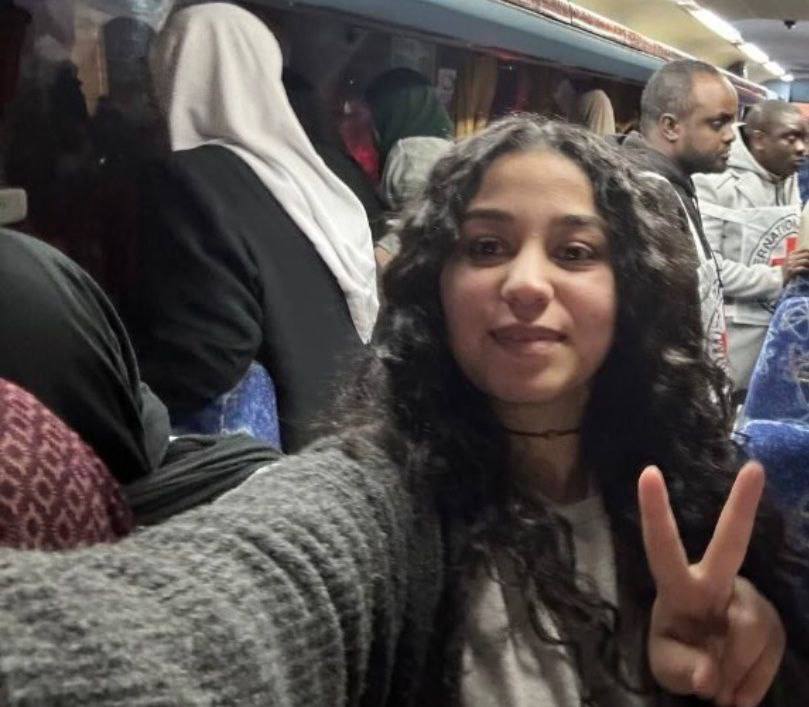
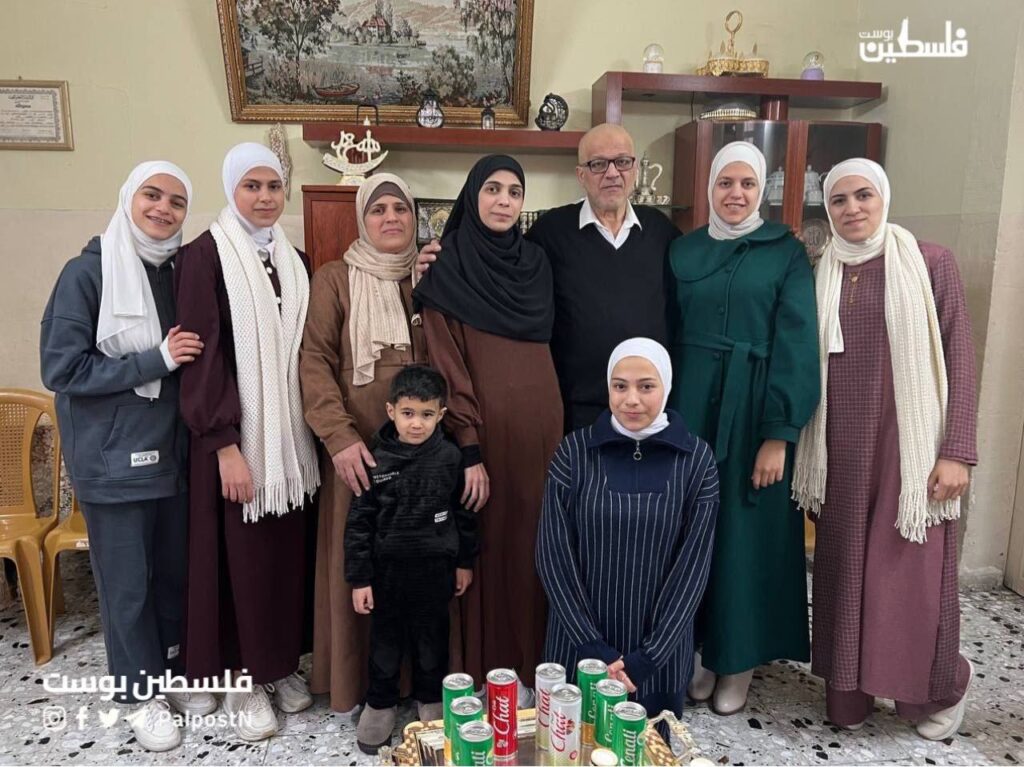
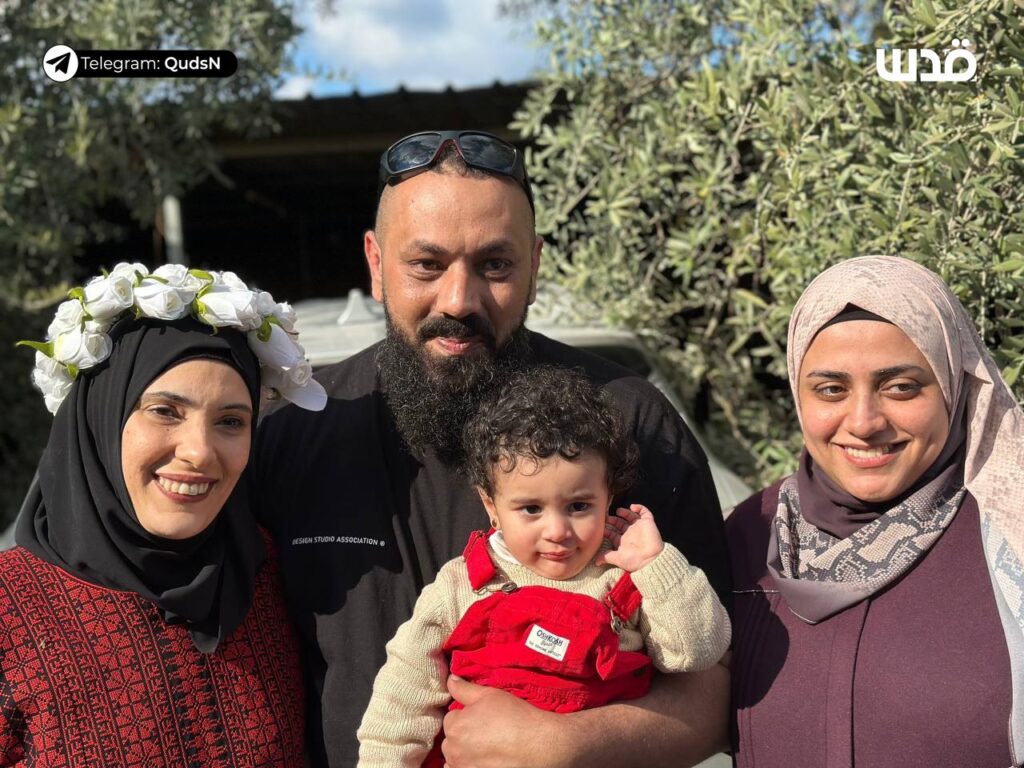
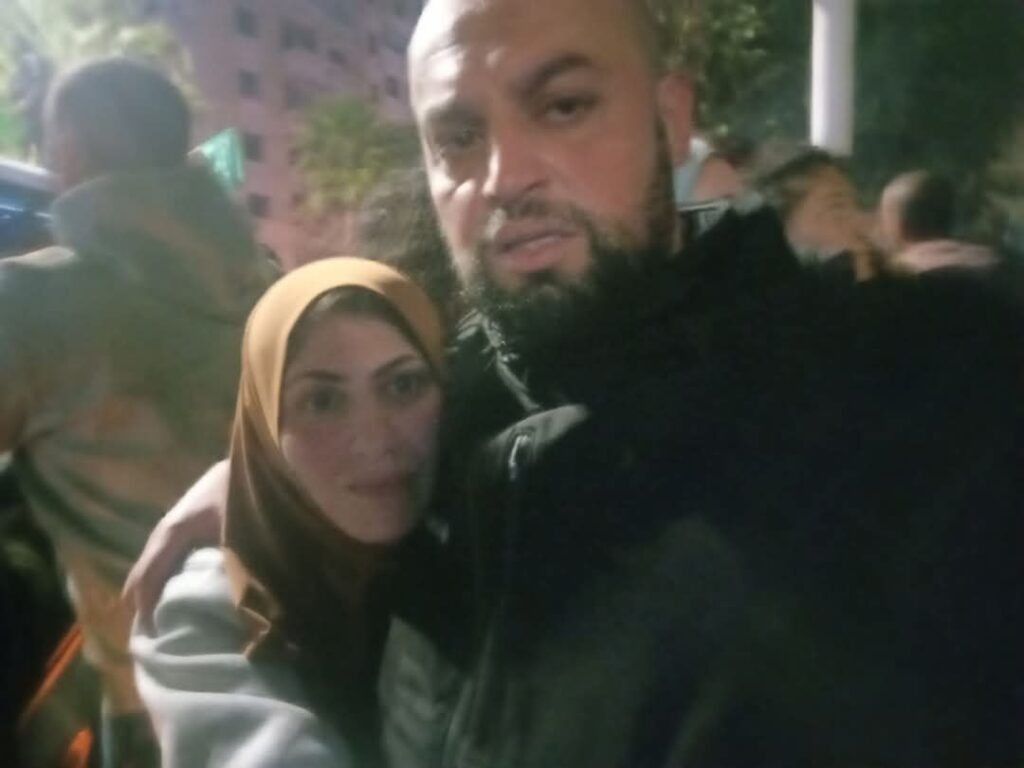
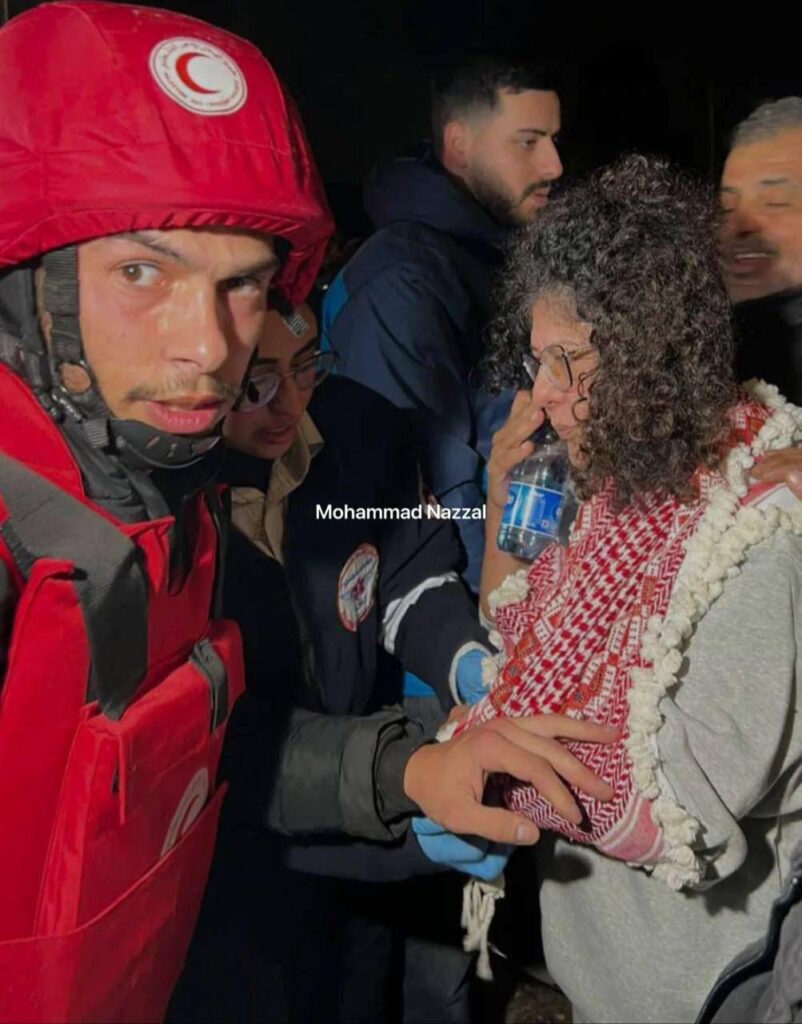
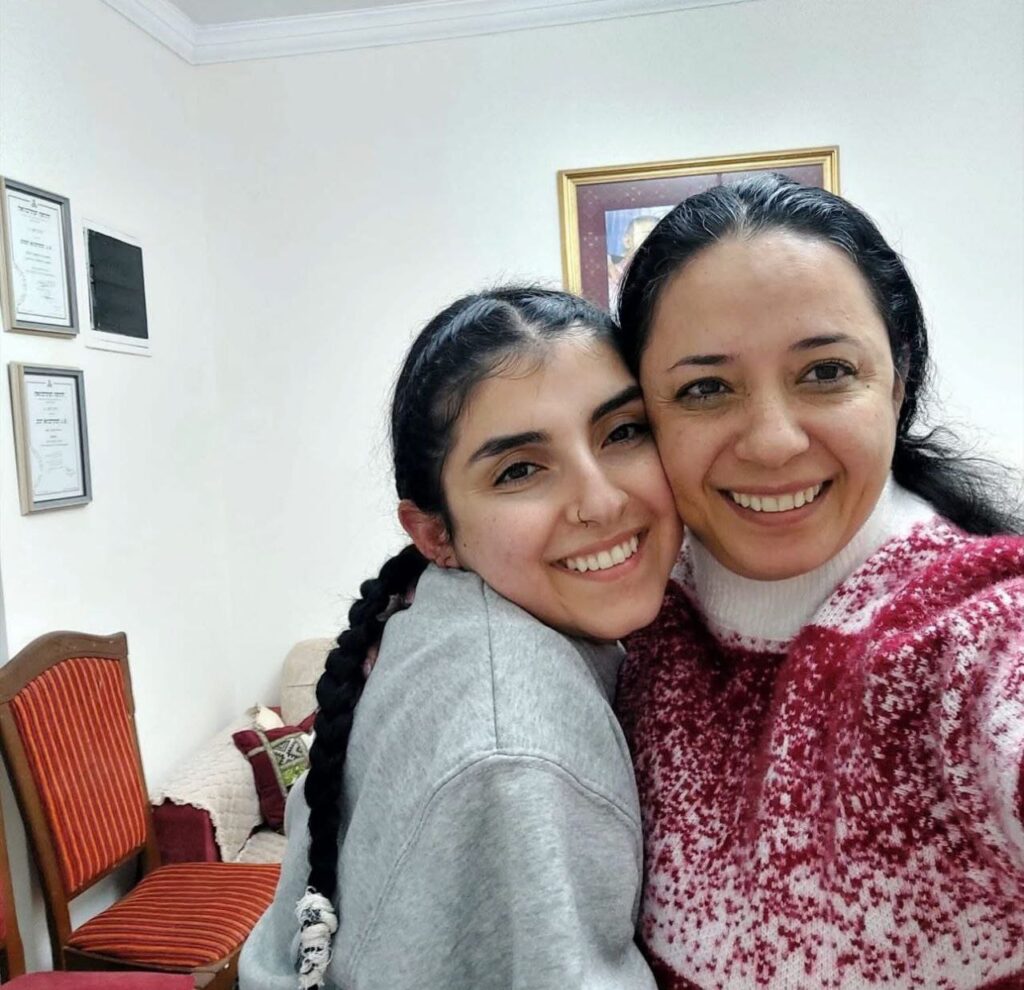
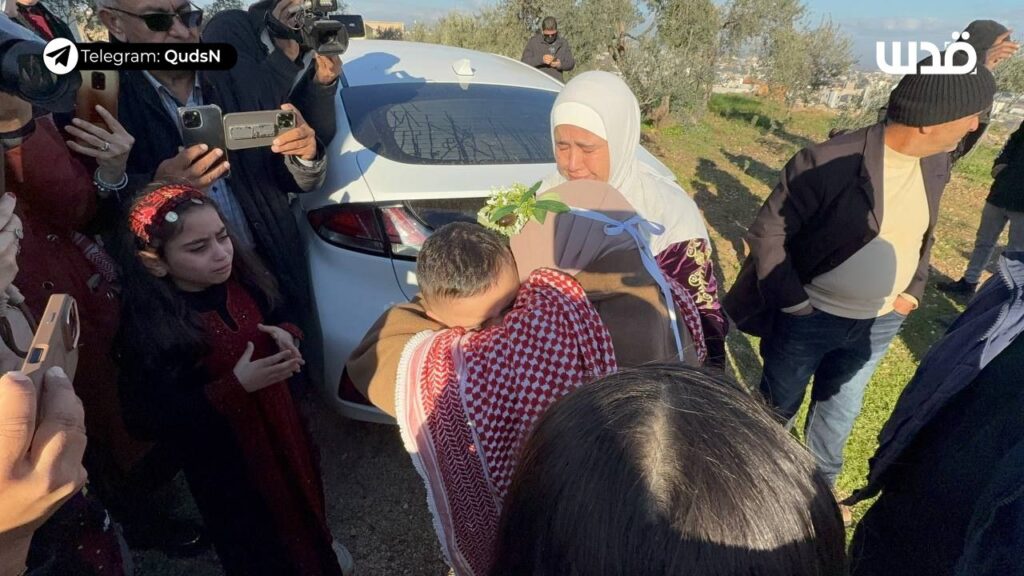
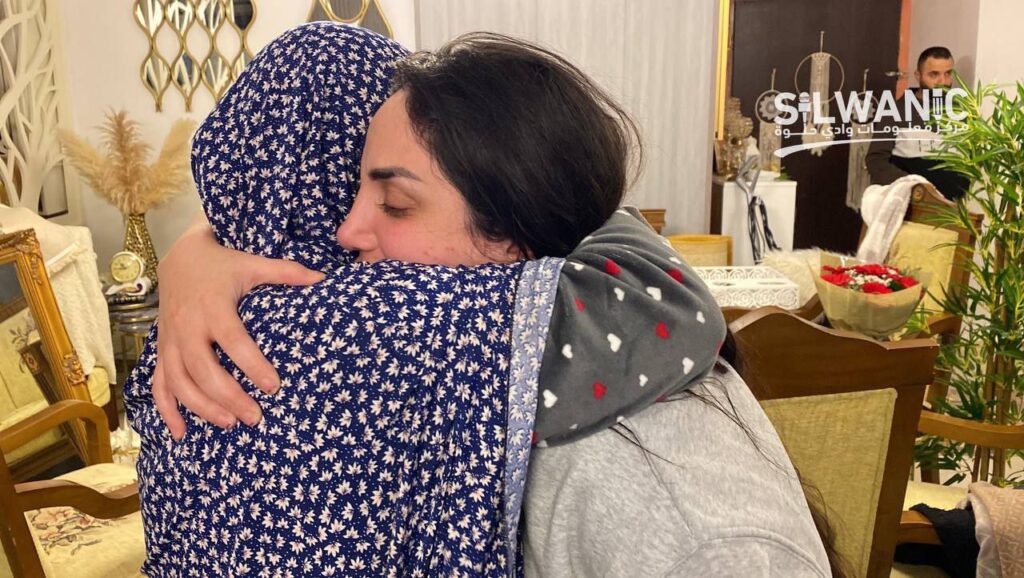
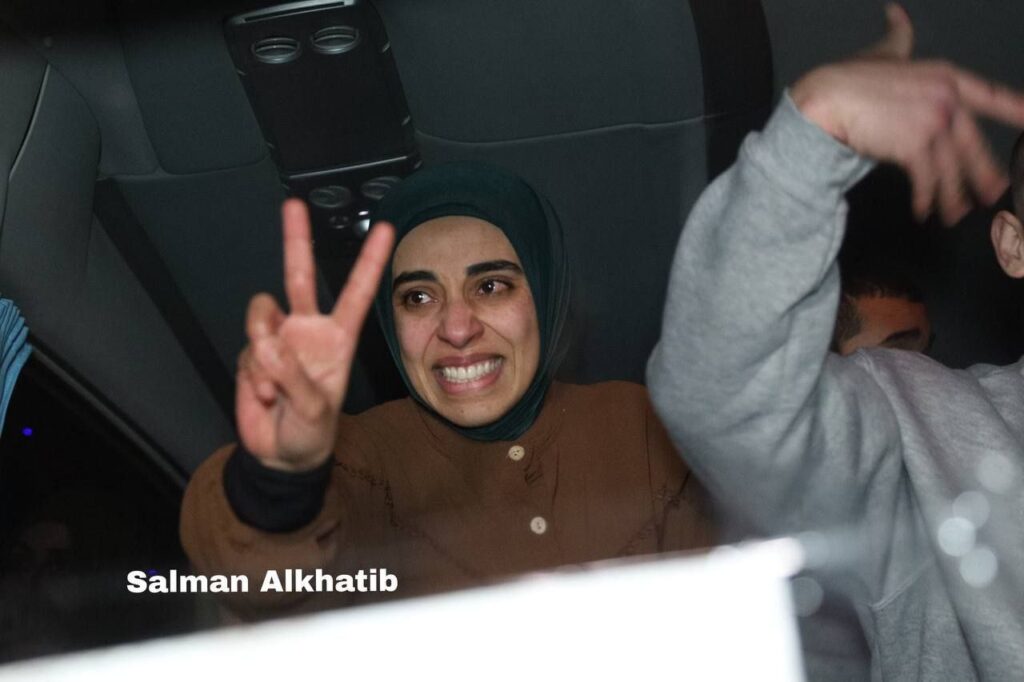
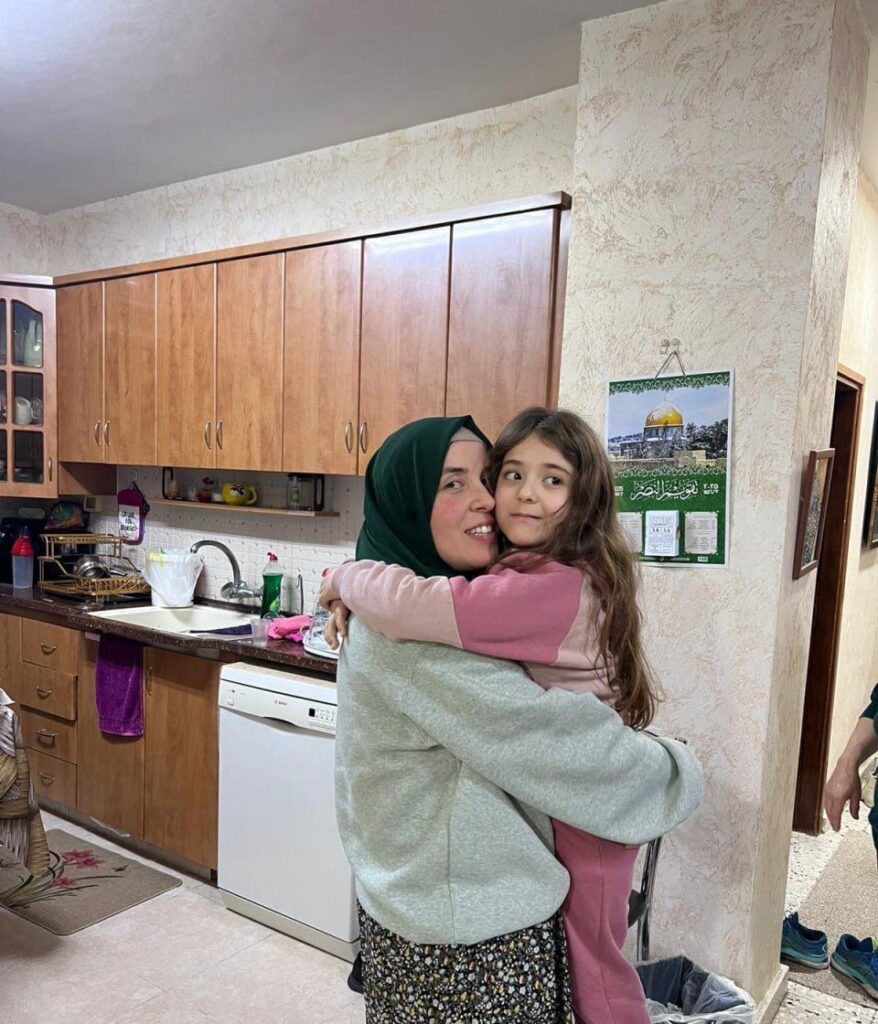
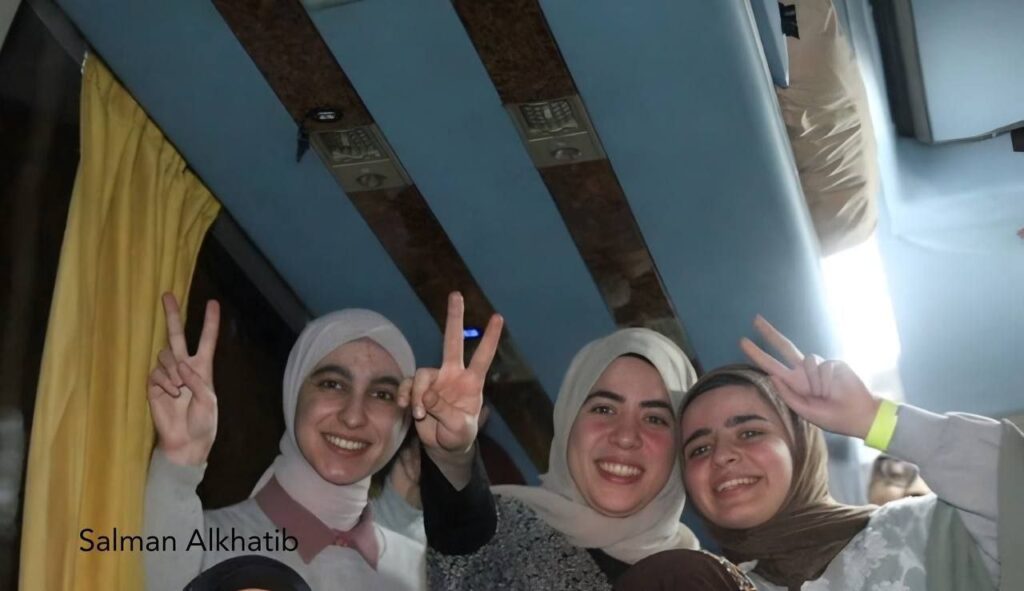
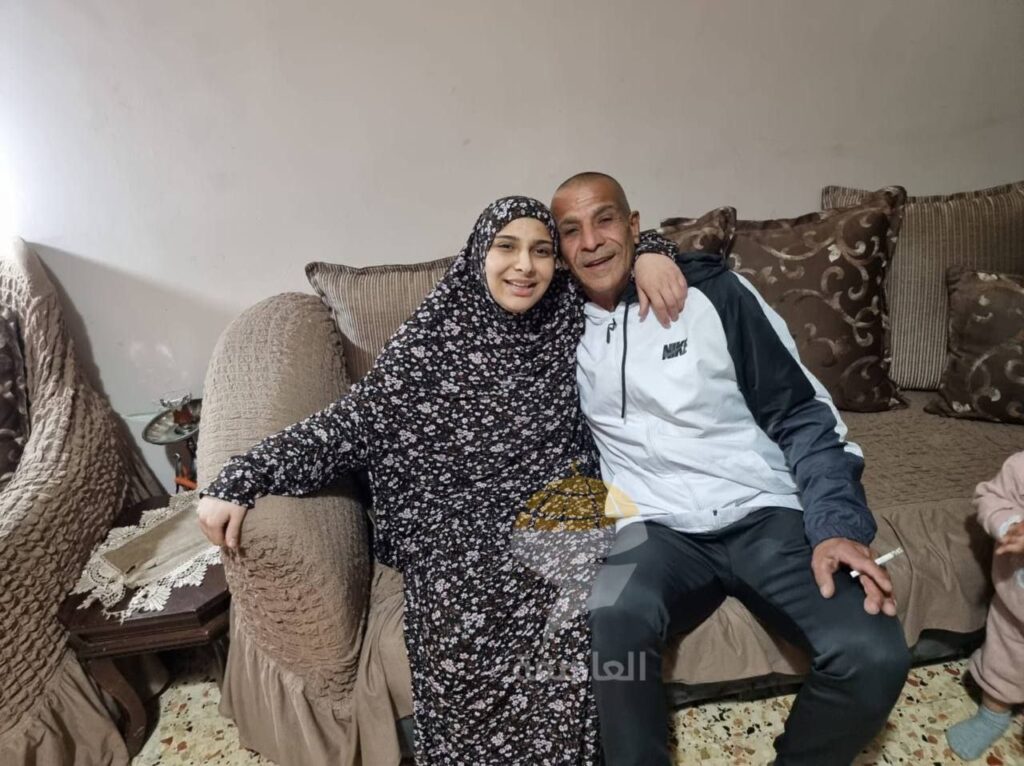
Discover more from Samidoun: Palestinian Prisoner Solidarity Network
Subscribe to get the latest posts sent to your email.



